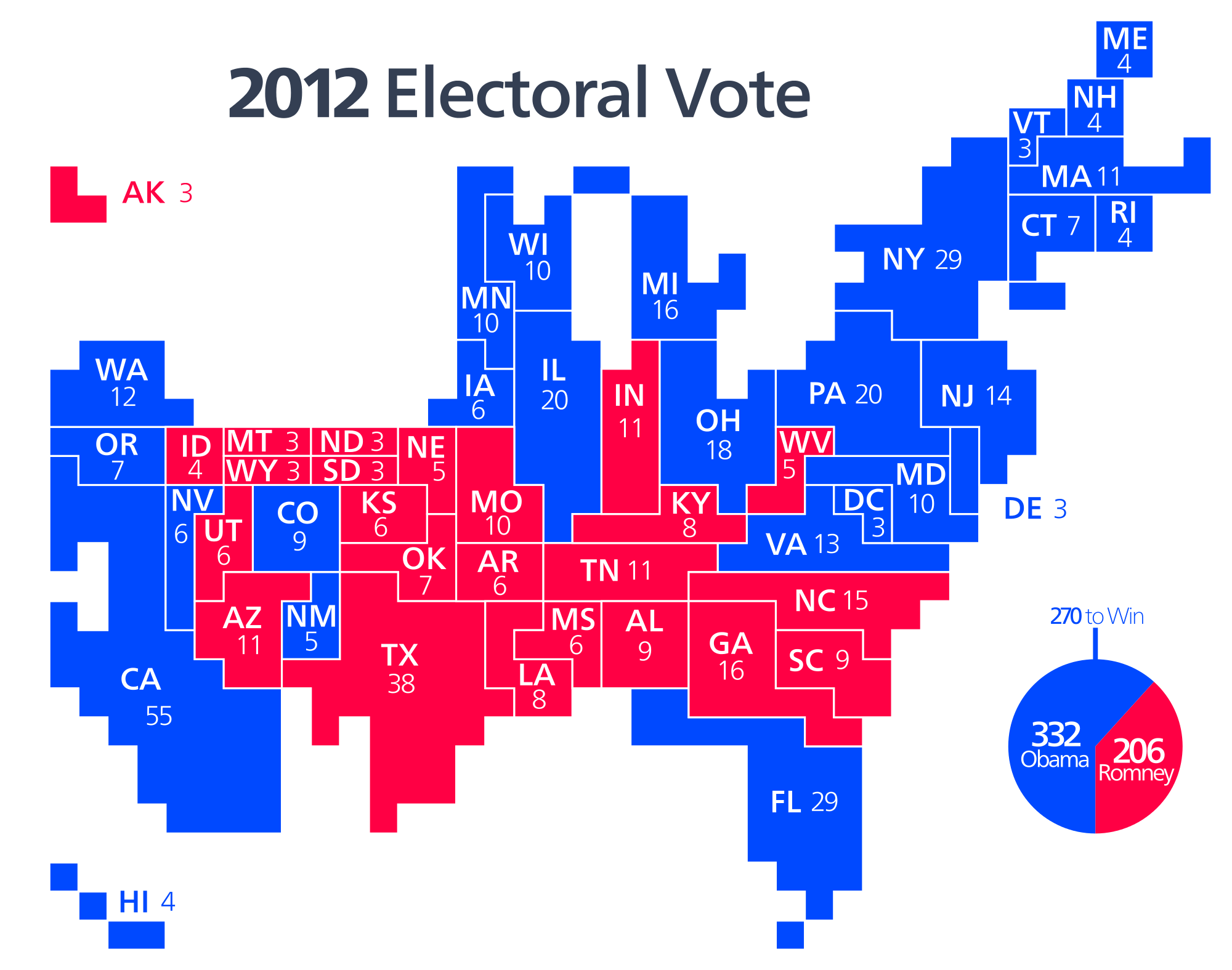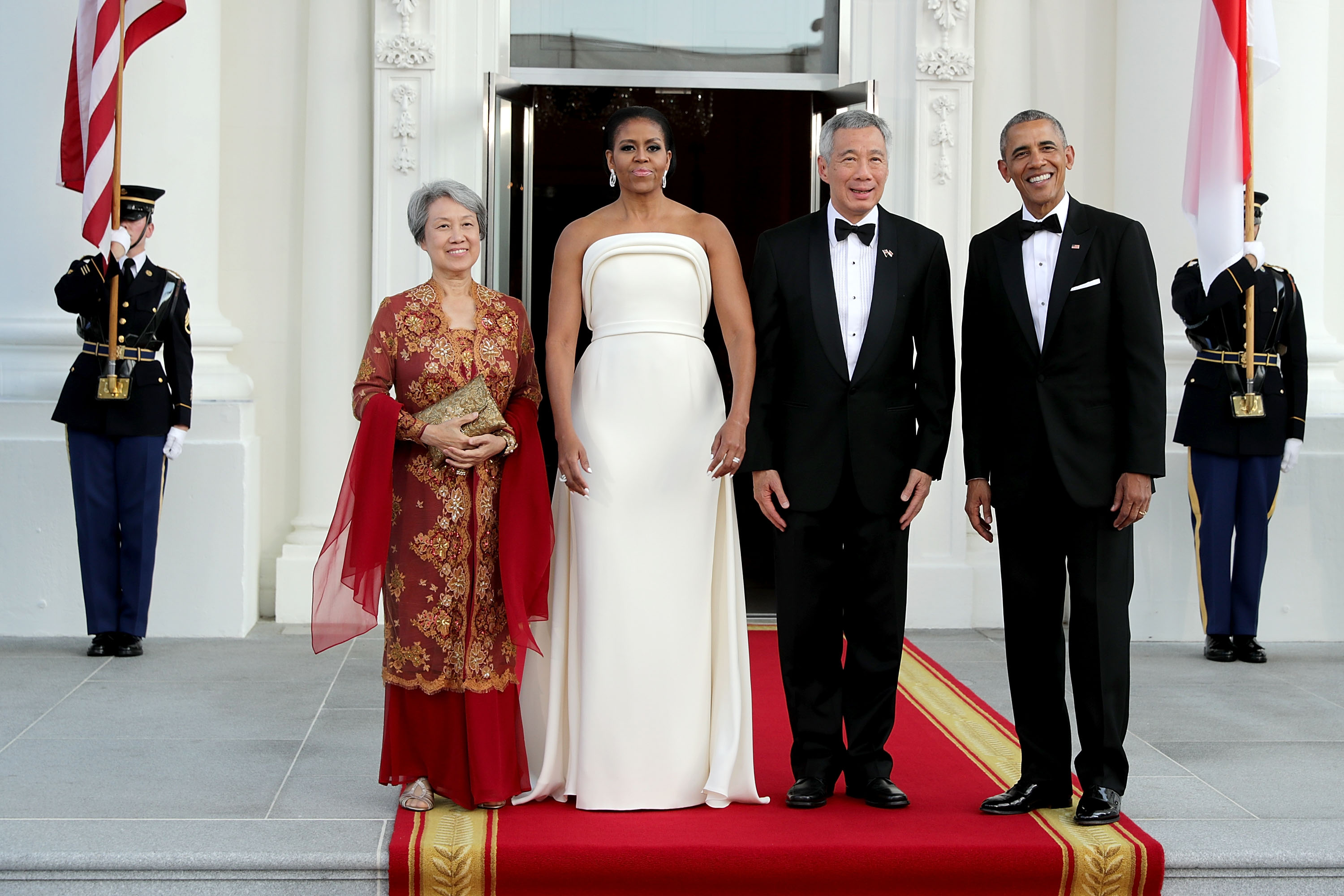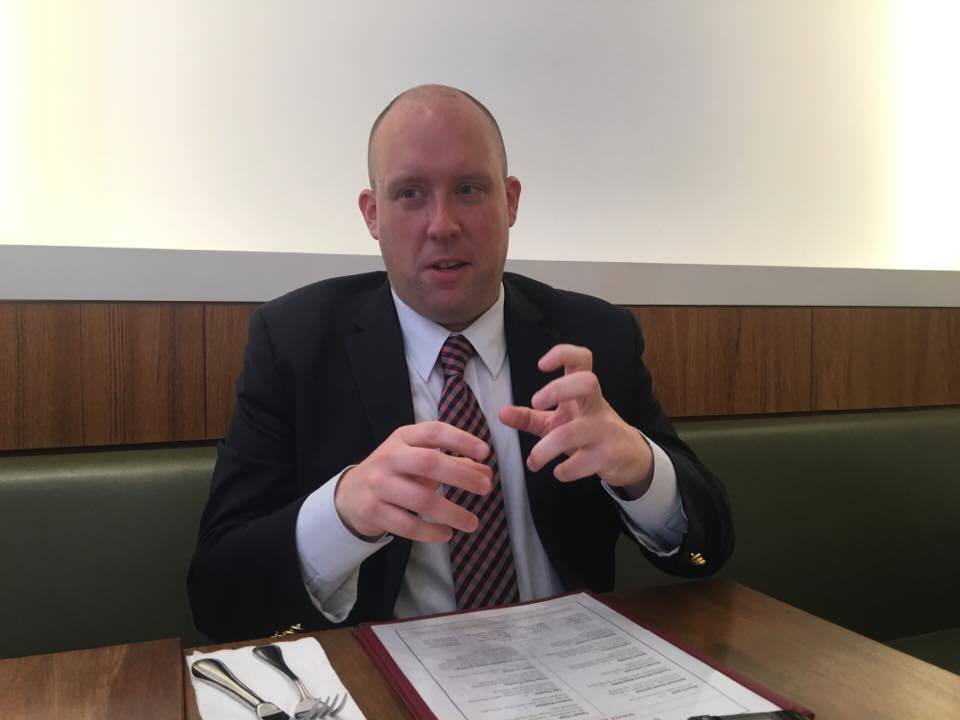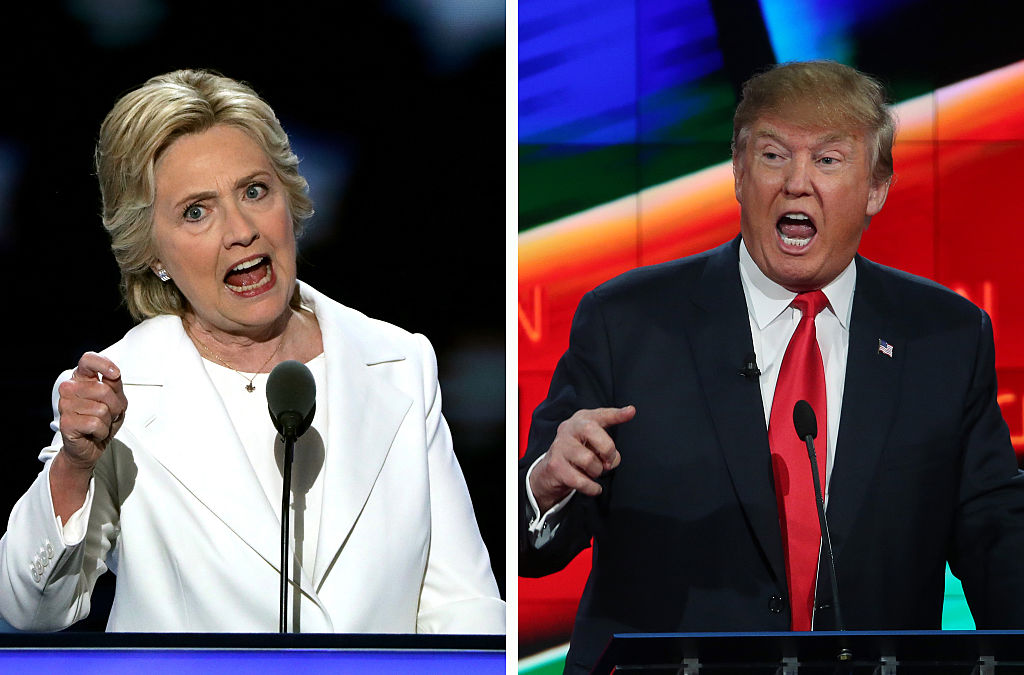Which scenario is more likely: Hillary Clinton elected as U.S. President, with a Democrat-majority Senate and Congress, or Donald Trump being elected as U.S. President?
Faced with these two slightly implausible scenarios, U.S. election expert Kyle Kondik chose the former.
With the Republican nominee (Trump) trailing quite significantly behind his Democrat counterpart (Clinton) in recent polls, Kondik tells Mothership.sg in a recent interview he is quite confident of a Clinton victory in November's election. This is also when Americans will head to the polls to pick their candidates to form the House of Representatives (Congress), their state senators (who will form the Senate) and by extension, their next president.
"I think the likeliest outcome is Clinton wins the presidency, Democrats win the Senate (very narrowly, probably) and the Republicans hold the House," he says.
But hoooold up. In case you're asking "simi House, simi Congress and simi Senate?", we asked him to explain:
"U.S. presidential elections are a series of 51 state-level elections, and 50 states in the district of Columbia have a certain number of electoral votes based on their population size.
Generally speaking, the national vote will be sort of reflected in the states, and the states that typically vote 10 (percentage) points more Democratic than the national average will continue to vote that way — and same way, 10 points more for Republican et cetera...
And also most of the states vote a lot more Republican than the nation or a lot more Democratic. There are only a small handful of states that vote the national average, and those are the states that generally decide the election. So states like Florida, Ohio, Virginia, Colorado, Pennsylvania, a handful of others.
So while yes the whole nation is voting, it's really a series of state-level elections."
 Source: Wikipedia
Source: Wikipedia
Now that's in order, how will a US presidency post-Obama affect Singapore and Singaporeans?
The main issue that affects Singapore directly is the Americans' ratification of the Trans-Pacific Partnership (TPP) deal.
We won't go into too much detail about this (you can read more at the hyperlink above), but basically:
- It involves 12 countries, including Japan, Singapore and the U.S.
- It was signed on February 4 this year in New Zealand, one of the parties to the deal.
- BUT, every country needs to internally agree to the agreed-upon terms (i.e. ratify the agreement) too, and here's where we're not sure if the U.S. will successfully pass it through its Congress and Senate.
- President Barack Obama is a proponent of this deal, but neither Clinton nor Trump are in favour of it — and it's an issue that both the Democrats and Republicans have mixed views about.
And the impact of a Trump or Clinton presidency?
Kondik describes Clinton's campaign as being "effectively for Obama's third term" — in other words, she's unlikely to do things too differently from how current president Obama has been.
"I think we'd see a pretty high level of continuity between Clinton and the Obama administration... you know Clinton has been opposed to the Trans-Pacific Partnership but, you know, potentially it could get passed before she becomes president — so she could, you know, effectively oppose it and not become responsible for it."
Now, what Kondik is talking about here is what is referred to as a "lame-duck" period — where the outgoing U.S. government will meet after the new one has been elected, but before the latter swears in and starts work officially.
He thinks that this is the best chance for the TPP to be ratified, because it'll certainly be far more challenging when the next president takes over.
 WASHINGTON, DC - AUGUST 02: (L-R) Ho Ching, first lady Michelle Obama, Prime Minister Lee Hsien Loong of Singapore and U.S. President Barack Obama pose for photographs in the North Portico of the White House August 2, 2016 in Washington, DC. The Obamas are hosting the prime minister and his wife for an official state dinner. (Photo by Chip Somodevilla/Getty Images)
WASHINGTON, DC - AUGUST 02: (L-R) Ho Ching, first lady Michelle Obama, Prime Minister Lee Hsien Loong of Singapore and U.S. President Barack Obama pose for photographs in the North Portico of the White House August 2, 2016 in Washington, DC. The Obamas are hosting the prime minister and his wife for an official state dinner. (Photo by Chip Somodevilla/Getty Images)
In fact, that was what Prime Minister Lee Hsien Loong alluded to during his official state visit to the United States. He hinted to Obama at his toast speech that the US-Singapore Free Trade Agreement was concluded by a "lame duck President" Bill Clinton, and this "shows what can be done even during lame duck periods".
Kondik also urges us to look on the bright side,
"But I also think that Clinton is probably a more internationally-minded person than Donald Trump is and I think that Clinton may actually be more of what we call a 'hawk' on foreign policy than Trump... so I think that Clinton is probably likelier to maintain our international agreements and maybe be a little bit more of a status quo president."
He also shared that in the case of Clinton being elected, a Democratic government will ensure consistency across the mid-level administration, as well as consistency of policies.
And what about Trump?
 Kondik speaking to the Mothership team. Photo by Jeanette Tan.
Kondik speaking to the Mothership team. Photo by Jeanette Tan.
Kondik says the billionaire is harder to predict on this front, though:
"He has suggested that he is somewhat critical of some of our alliances, and asking some of the countries to maybe pay more for their own national defence. He's more talking about Europe with that but I also wonder about how Donald Trump as president would handle some of our treaty relationships in Asia...
I think there's just more uncertainty about Trump in international affairs... there are some leaders — and actually just the general public from what I can tell — here in Singapore who I think will be a little uneasy or may be a little more comfortable with Clinton as the U.S. president than maybe with Trump."
Remember November 8, for this is the date when Americans will go to the polls.
This is also the day when the world (and Singaporeans) wait with bated breath on who "the Leader of the Free World" would be.
In the meantime, you can check out Kondik's latest predictions on how Americans will vote.
Additional research by Yeo Tsiu Wen.
Top composite image from Getty Images.
If you like what you read, follow us on Facebook and Twitter to get the latest updates.
If you like what you read, follow us on Facebook, Instagram, Twitter and Telegram to get the latest updates.
